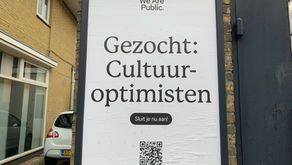Hebden Bridge, Yorkshire
- Judith Weir
- Nov 21, 2017
- 2 min read

My rail journey from Cambridge to Hebden Bridge took a while. On re-boarding at Peterborough, I and my fellow-passengers were surprised to learn that our train to Leeds would first be travelling quite a long way in the opposite direction, towards Lincoln. However, the view of Lincoln’s magnificent Cathedral (for several centuries the tallest building in the world) was an unexpected Gothic extra on a morning when we’d already passed Ely and Peterborough Cathedrals. (I had additionally skirted King’s College Chapel on my way to Cambridge station). Journeying out of Leeds up the Calder Valley was equally epic, with Victorian buildings hanging improbably to steep ravines in the old mill towns.
Travelling the byways of the UK isn't always full of pleasant surprises. Going round and about in the last years, I’ve visited many potentially pleasant small places in rural settings which are visibly the victim of short and long term financial decline. An immediate sign is the inevitable set of boarded up shops in what was once the ‘high street’. But, on finally reaching Hebden Bridge, it was instantly clear that this much-quoted town, home to innumerable artisan startups and almost no chain stores, has fought off possible decline with powerful community spirit, the seeds of which were planted in the alternative 1960s.
In fact that spirit probably evolved longer ago. I was in town to speak to the Hebden Bridge Literary and Scientific Society. Organiser Mark Whitaker explained that he had revived the Society (originally founded in 1905) last year, having discovered that in earlier times, august figures such as Oxford dons would visit the valley to talk to townspeople in a similar forum. There was a healthy turnout on Saturday night to hear my own talk, which was going to be about composers, and how they work. But talking to my friendly listeners, another theme soon emerged: the legacy of post-war optimism in the arts and education which had allowed so many of us present that evening, born in those mid-20th century decades, to pursue our own interests and be educated in them free of charge. Somehow, that ‘virtuous circle’ of public generosity seemed to be the key to the flourishing activity I’d seen during the afternoon in this exhilarating, upbeat place.






